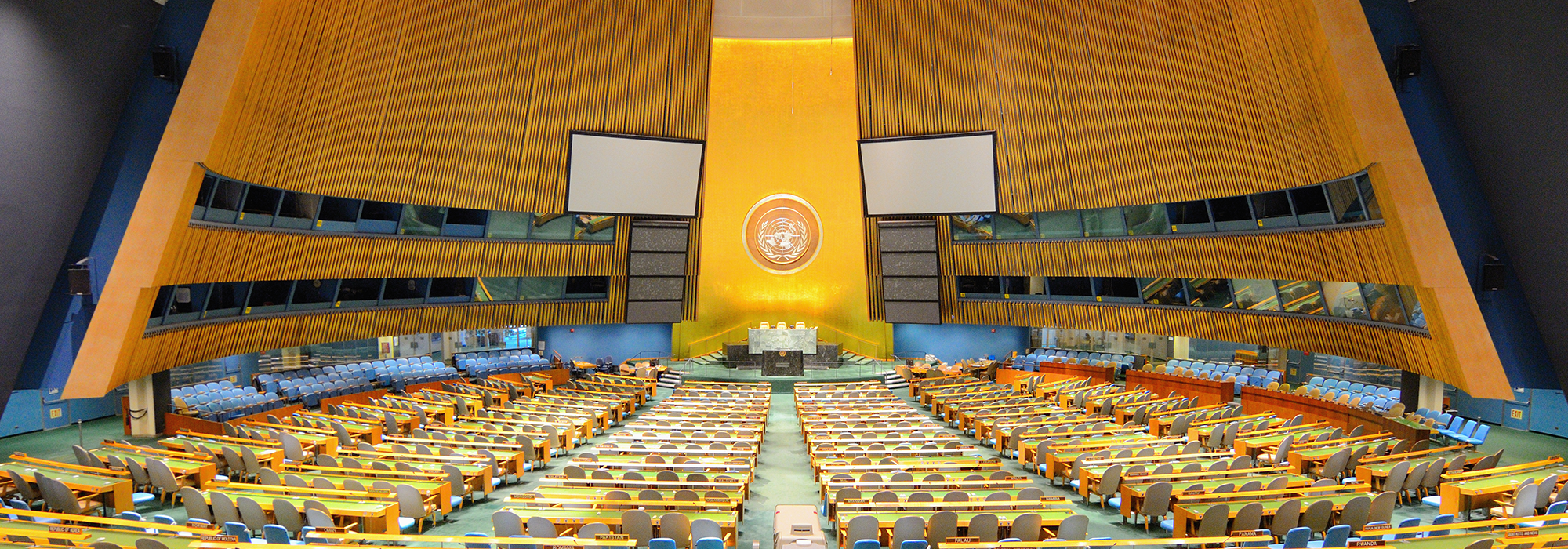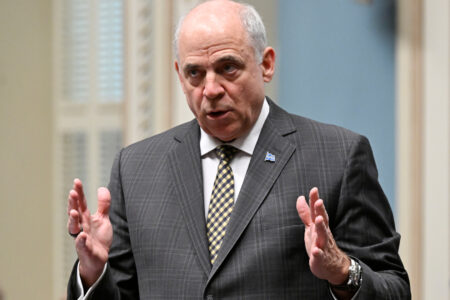
Canada’s announcement last week that it now fully supports the United Nations Declaration on the Rights of Indigenous Peoples (UNDRIP), without qualification, appears on its surface to be a welcome shift in attitude from the previous government when it comes to Canada’s interpretation of its human rights obligations. However, the substance of this announcement, delivered by Carolyn Bennett, Minister of Indigenous and Northern Affairs Canada, during the 15th U.N. Permanent Forum on Indigenous Issues in New York City, suggests that actually we may not be witnessing a clear departure from the previous government’s position on the Declaration.
In her statement, Minister Bennett committed Canada to implementing the Declaration in accordance with Canada’s Constitution. She characterized Section 35 of the Constitution as an existing “robust framework” for the protection of Indigenous rights and a “full box of rights for Indigenous peoples in Canada.” Section 35 recognizes and affirms aboriginal and treaty rights, and the Crown has a duty to consult when its activities will impact those rights. Bennett stated that Canada believes that its existing constitutional obligations under Section 35 “serve to fulfill all of the principles of the [UN] Declaration, including ‘free, prior and informed consent.”’
These statements are inconsistent with what it generally means to endorse and implement an international human rights instrument. The rights affirmed by the U.N. Declaration must complement and build upon existing domestic laws and policies, not simply be re-interpreted in ways that align with them.
The Declaration affirms rights such as the collective right of Indigenous peoples to self-determination (Article 3), from which flows the right of Indigenous peoples to free, prior and informed consent (Article 19). In its most basic definition, free, prior and informed consent means that when governments contemplate actions that may affect our peoples, we have the right to give or withhold our consent. This is a much stronger standard than “consultation.”
In the past, Canada has declared that it opposes free, prior and informed consent when it could be interpreted as a veto, but has never explained its position as to what constitutes “consent” and what constitutes a “veto.” Canada’s 2014 statement on the World Conference of Indigenous Peoples Outcome Document described free, prior and informed consent as being irreconcilable with Canadian law. The statement describes how Canada already “consults with Aboriginal communities and organizations on matters that may impact their interests or rights.”
Canada’s fears that the Indigenous right to free, prior and informed consent would set a more rigorous standard than “consultation” were at the centre of its original, qualified endorsement of the Declaration in 2010. At that time, the Conservative government committed to taking “steps to endorse this aspirational document in a manner fully consistent with Canada’s Constitution and laws.” Minister Bennett’s announcement on Tuesday is in keeping with this position, and appears to suggest that “consultation” and “free, prior and informed consent” are one and the same.
There are fundamental differences between the two, however. “Consultation” means that government may ask Inuit what we think about actions, policies and programs that may affect us, but has no obligation to consider our feedback when it makes decisions. In our experience, this has been the case more often than not. “Consent” speaks to our right to choose and assert our position, and to have that position influence the outcome of any given decision government takes.
Consent speaks to our right to choose and assert our position, and to have that position influence the outcome of any given decision government takes.
The U.N. Declaration is an international human rights instrument that guides governments to uphold minimum standards for the treatment of Indigenous peoples. As with all international human rights instruments, governments who have endorsed the U.N. Declaration are tasked with rising to meet the standards contained therein by aligning their domestic laws and policies with those instruments.
There is a need for consent-based processes within and outside of the context of Section 35 of the Constitution. We do not see it as a “full box of rights,” but as a starting point or reference for moving forward in partnership with the Government of Canada.
In our experience, consultation between government and Inuit has been undertaken in piecemeal and uneven ways that are largely left to the discretion of individual government agencies. The Declaration is intended to help move us beyond this point to a place where the right of Inuit and other Indigenous peoples to give or withhold our consent, and to thereby exercise our collective right to self-determination, can be exercised.
We are disappointed that Canada’s positions on these fundamental issues were not discussed with Inuit prior to Tuesday’s announcement. We would have preferred that Inuit had been engaged in an open discussion that weighed all considerations and perspectives, before the government made a public statement that set the legal parameters for this important work going forward.
However, we remain optimistic that institutional mechanisms can be developed in partnership with Inuit and other Indigenous Canadians to ensure that the Declaration is implemented more broadly across government. We trust that these inconsistencies reflect the growing pains of a new government rather than a departure from the desire of government to work in partnership with Inuit and other Indigenous peoples.
Photo: Sean Pavone / Shutterstock.com
Do you have something to say about the article you just read? Be part of the Policy Options discussion, and send in your own submission. Here is a link on how to do it. | Souhaitez-vous réagir à cet article ? Joignez-vous aux débats d’Options politiques et soumettez-nous votre texte en suivant ces directives.






